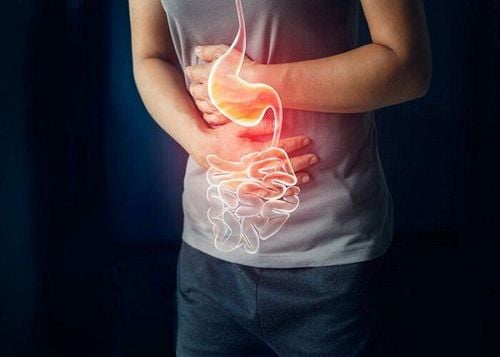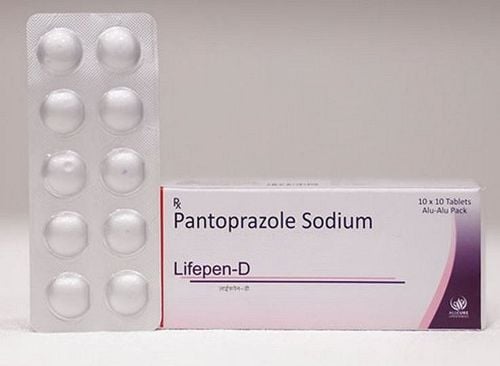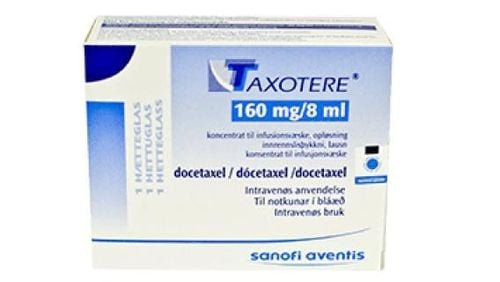This is an automatically translated article.
The article was written by MSc Mai Vien Phuong - Department of Examination & Internal Medicine, Vinmec Central Park International General Hospital1. What causes stomach upset?
Some common gastrointestinal problems that can cause abdominal pain include:
1.1 Acid Reflux Gastroesophageal reflux disease (GERD) occurs when stomach acid backs up into your esophagus. It can cause a burning sensation in your chest or stomach along with chest pain, difficulty swallowing, and a chronic cough.
If GERD is left untreated, it can lead to a precancerous condition known as Barrett's esophagus.
1.2 Gastritis Gastritis is a condition that causes inflammation of the lining of your stomach. In addition to abdominal pain, you may also experience:
Nausea Vomiting Feeling full after eating Sometimes, gastritis can lead to stomach ulcers, stomach bleeding and an increased risk of stomach cancer.
1.3 H. pylori infection Helicobacter pylori (H. pylori) infection occurs when bacteria infect your stomach. H. pylori infection is a major cause of stomach ulcers and can increase a person's risk of developing stomach cancer.
>>> Prevention of stomach cancer in people infected with H. pylori
1.4 Ulcers Peptic ulcers are sores that develop on the inner lining of the stomach and the upper part of the small intestine. Some people with peptic ulcers do not experience any discomfort. Stress and spicy foods don't cause ulcers, but they can worsen your symptoms.
1.5 Irritable Bowel Syndrome (IBS) IBS is an intestinal disorder that causes abdominal discomfort, and sometimes, burning pain.
>>> What are the different types of irritable bowel syndrome (IBS)?
1.6 Indigestion Dyspepsia, also known as dyspepsia, or simply colic, means you have an uncomfortable feeling in your upper abdomen. It could be a symptom of another digestive problem.

1.8 Hernia A hernia occurs when an organ pushes through the muscle or tissue around it. There are many types of hernias, and some can cause a burning sensation in the bulge.
1.9 Reactions to foods A reaction or intolerance to certain foods can cause stomach burns in some people.
For example, if you are lactose intolerant, you are not producing enough of the enzyme needed to digest the lactose in milk. Consuming dairy products can cause nausea, bloating, cramps or stomach burning.
Likewise, when people with celiac disease eat gluten - a protein found in wheat - the body attacks their small intestine. They may experience intestinal symptoms, such as diarrhea, weight loss, or bloating.
1.9.1 Smoking Smoking affects your entire body. Smokers are more likely to have stomach burns and digestive problems.
1.9.2 Alcohol Drinking alcohol can irritate your digestive tract and cause a burning sensation in your stomach. Drinking too much alcohol can lead to:
Stomach ulcers Gastritis Other digestive tract problems Some people also have alcohol intolerance, a condition that inhibits the body's ability to digest alcohol.
1.9.3 Stomach cancer Sometimes, cancer can cause a burning sensation in your stomach. Other symptoms of stomach cancer include:
Fatigue Feeling full after eating a meal or a small amount of food Ợ severe acidity or indigestion Nausea Vomiting Weight loss
2. When to see the doctor?
You should see your doctor if your stomach upset persists for more than a few days. In some cases, endoscopy, a procedure that allows your doctor to look inside your stomach with a small tube and camera, is done to find the cause. A breath or stool test is often done to diagnose an H. pylori infection.Currently, hospitals under the Vinmec International General Hospital system, use the carbon isotope 13C in the breath test to diagnose H. pylori bacteria with the most advanced machine with 02 airbags, both affordable and affordable. diagnostic treatment is very high (> 95%) while ensuring safety for patients.
Please dial HOTLINE for more information or register for an appointment HERE. Download MyVinmec app to make appointments faster and to manage your bookings easily.
You should seek immediate medical help if you have a burning stomach pain along with other serious symptoms, including:
Black, bloody or tarry stools Severe stomach pain Difficulty swallowing or breathing Vomiting severe pain or vomiting blood Feeling a mass in your stomach area Unexplained weight loss Fever accompanied by pain in your stomach Swelling in your abdomen Yellow eyes or skin Pain that interferes with sleep References:
Mayo Clinic Staff. (2018). Abdominal pain. mayoclinic.org/symptoms/abdominal-pain/basics/when-to-see-doctor/sym-20050728 Mayo Clinic Staff. (2018). Gastritis. mayoclinic.org/diseases-conditions/gastritis/symptoms-causes/syc-20355807 Mayo Clinic Staff. (2018). Gastroesophageal reflux disease (GERD). mayoclinic.org/diseases-conditions/gerd/symptoms-causes/syc-20361940 Mayo Clinic Staff. (2018). Peptic ulcer. mayoclinic.org/diseases-conditions/peptic-ulcer/symptoms-causes/syc-20354223 Smoking and the digestive system. (two thousand and thirteen). niddk.nih.gov/health-information/digestive-diseases/smoking-digestive-system














